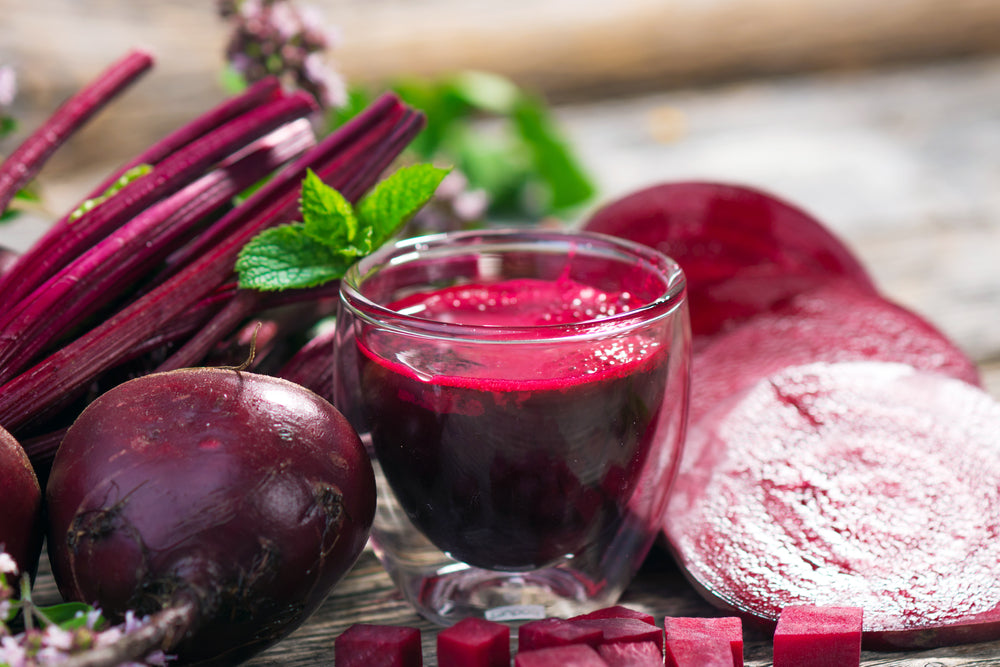Beetroot is having a purple patch (excuse the pun)! Beetroot was once a rather maligned vegetable but these days it’s becoming ever-increasingly popular and for very good reason.
Clinical Nutritionist, Suzie Sawyer, gives us her seven great reasons why we should all be making beetroot one of our top priorities when choosing vegetables!
It’s good for the heart!
Beetroot is nutritionally dense, but provides particularly rich sources of folic acid, fibre, vitamin C and potassium, all of which benefit the heart. Additionally, drinking beetroot juice can have a rapid effect on the reduction in systolic blood pressure. This is partly due to its nitrate content producing nitric oxide, which encourages dilation of blood vessels, thereby reducing blood pressure.
It’s great for the immune system!
Beetroot is an excellent source of vitamin C which is one of the hardest working nutrients in maintaining strong immunity in the body. However, it’s the plant pigment betacyanin, which gives beetroot is beautiful rich, purple-crimson colour that really contains all the power; it provides an excellent source of antioxidants which also support the immune system.
It boosts exercise performance
Ask the Olympians! Beetroot is widely used by athletes because of its very well-researched ability to enhance exercise performance, particularly endurance exercise. Again, it’s down to the nitric oxide effect. Numerous studies have confirmed this finding; one in particular followed power cyclists and found their performance to be enhanced after drinking beetroot juice.
It helps detoxification
Beetroot naturally helps to detoxify the liver; it actually encourages phase 2 of the liver’s detoxification processes which is where toxins are excreted from the body. It’s therefore a really popular vegetable in any juice-based detoxification programme, but also for anyone wanting to keep their liver super-cleansed!
It’s good for the eyes
This is primarily down to the rich sources of beta-carotene in beetroot. This is an excellent nutrient for helping to slow down macular degeneration which is quite a common condition especially as we age, and is associated with free radical damage. Beta-carotene is turned into vitamin A in the body which has the ability to defend the eyes against the damaging effects of these free radicals.
It’s rich in fibre
Beetroot is rich in fibre, which means it’s well liked by the bowels, keeping them regular. And don’t forget the greens – these are also rich in iron and can be cooked just like spinach; very lightly steamed to retain all the nutrients.
It’s full of antioxidants
With those dreaded free radicals bombarding us every day from air pollution, smoking, drinking, toxins in the food chain, the sun…….. the list goes on, your body can often use some help in uprating its naturally protective antioxidant enzyme systems. Indeed, beetroot appears to uprate one of the most powerful antioxidant enzymes in the body, glutathione peroxidase, which keeps a good check on those free radicals and also helps us to stay looking (and feeling!) young.

